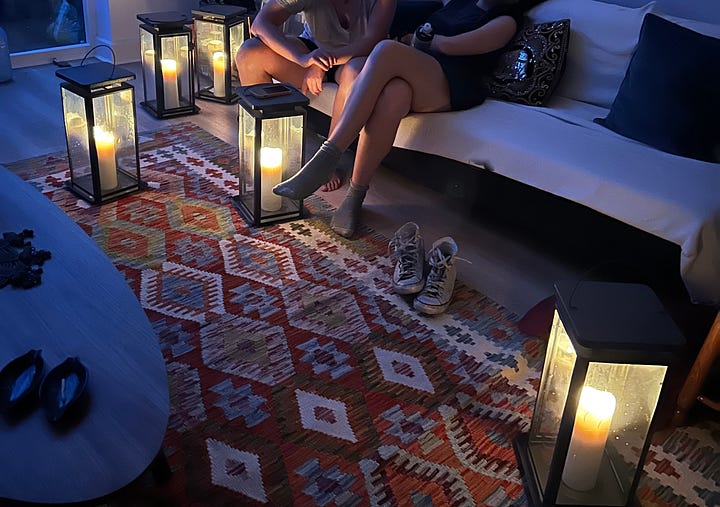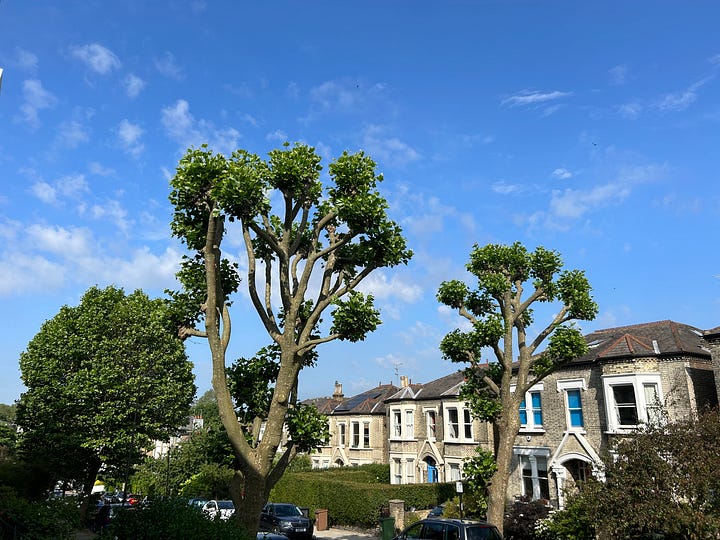

1. It starts in London.
There's a couple next to me. They aren’t together, I don’t think. Both are in their seventies. The man is telling the woman that she shouldn’t have written, “hope you have a happy day” on a birthday card to her sister-in-law whose husband just died. “But it’s just such a lovely card,” she sighs. “I’d hate to waste it.”
The man look…




